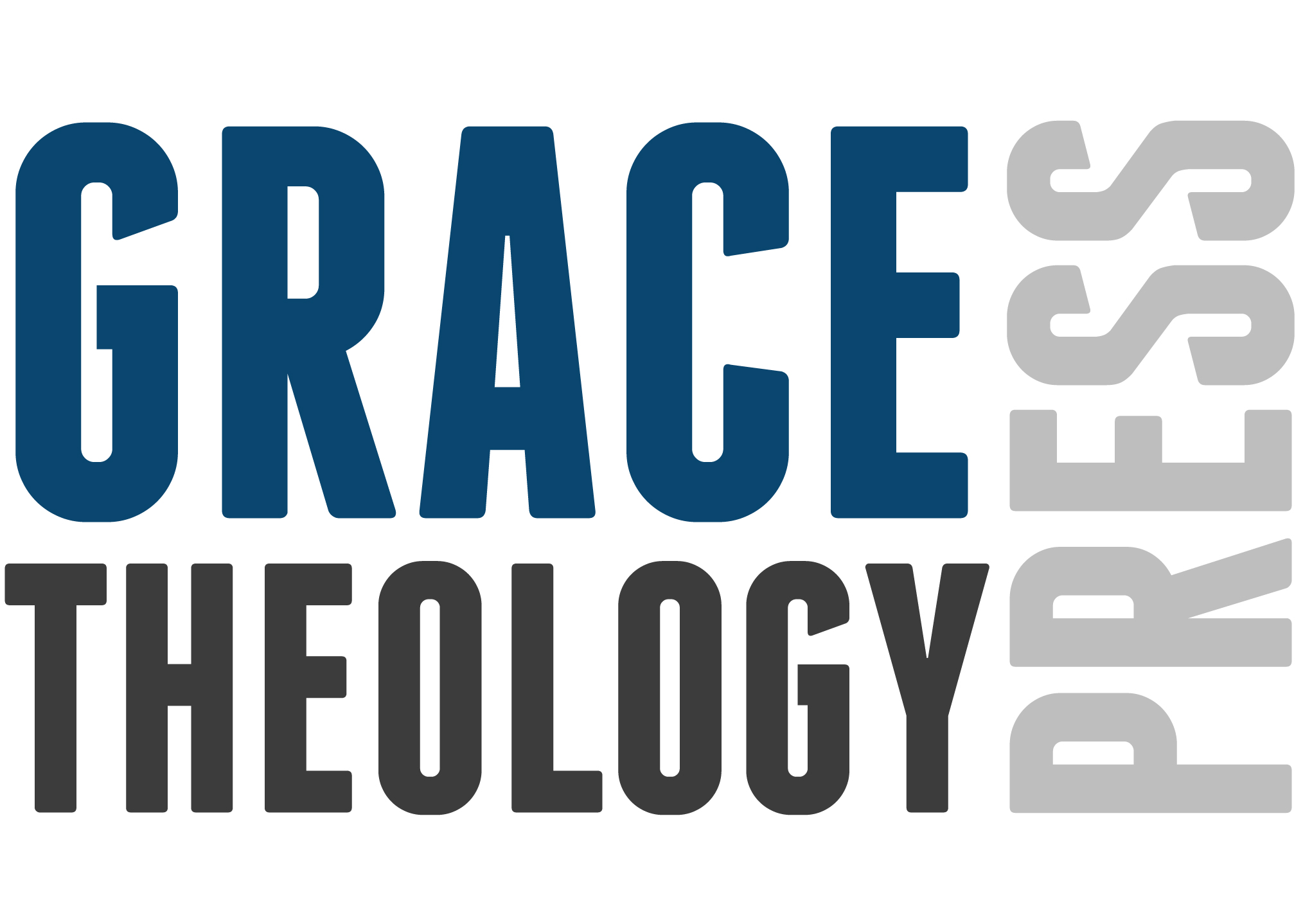Today is a great day for Grace Theology Press (GTP)! We are at the Free Grace Alliance (FGA) National Conference in Arlington, Texas, and I am very excited because we are introducing three new books we just published. I hope you will have a chance to visit our online bookstore and read about our authors. Many of our authors have been part of FGA since its inception, and a few of us have been on its leadership counsel. GTP and FGA have a shared vision in that we desire to make the gospel of grace clear to those who need to receive eternal life (justification) and encourage those who are seeking to faithfully follow Christ (sanctification). GTP seeks to accomplish this through the production of biblically accurate and theologically articulate books. The church has always needed resources to guide its people in forming theology and doing ministry. It was true in the ancient church that produced creeds and catechisms, and it is true today as we seek to keep the gospel of grace clear.It is true as the “Preacher” (Qoheleth) said: the writing of many books is endless, and excessive devotion to books is wearying to the body. (Eccl. 12:12)
However, it is important that we keep up on the theological issues of the day. A new release by Dr. Thomas Schreiner is worth a comment. It is entitled Faith Alone: The Doctrine of Justification (Zondervan 2015). The forward is by Dr. John Piper, and “The Sola Series” editor is Dr. Matthew Barrett. The three names just mentioned will inform you that this is to be a tour de force in Reformed Theology. However, there is much good to be gained by reading this book from both the historical and systematic theological viewpoints. But I mention this book to you because of the mention of the “Free Grace Movement” within its pages.
Although Dr. Schreiner is gracious in his comments about us, he is clear that we are in error concerning Free Grace Theology. In a section called “Mental Assent Isn’t Saving Faith,” he opines:
“Some in the movement known as the Free Grace movement claim that bare mental assent actually saves people. (Here he footnotes the late Dr. Earl Radmacher, his former teacher. ed.) They have come up with a novel interpretation of James 2, for they claim that the words “justify” (dikaioo) and “save” (sozo) do not refer to eschatological salvation. James, they claim, isn’t actually talking about end-time salvation, for that would contradict salvation by faith alone.
The motive behind this interpretation is commendable, for those who espouse it long to celebrate the grace of God. They want to eliminate any notion that human works qualify us to stand before God. They want to preserve in all its power and beauty the notion that salvation is sola fide. Still, the gambit fails for this is an example of desperate exegesis. It doesn’t work to provide new definitions for the words “justify” and “save,” definitions that aren’t found in the rest of the NT.”
The argument is standard fare for Evangelical Reformed Theology. As to who is engaging in “desperate exegesis,” you be the judge. The fact is this debate and all theological debates must be examined and explained at an exegetical level since we not only hold to Sola Fide, but also to Sola Scriptura.
And so the purpose of GTP is to provide you with resources that are biblically accurate, theologically astute, and spiritually affirming.
Serving Him with you
Until He comes for us,
Fred Chay, PhD
Managing Editor
Grace Theology Press
Serving Him with you until He comes for us,
Fred Chay, PhD
Managing Editor, Grace Theology Press














